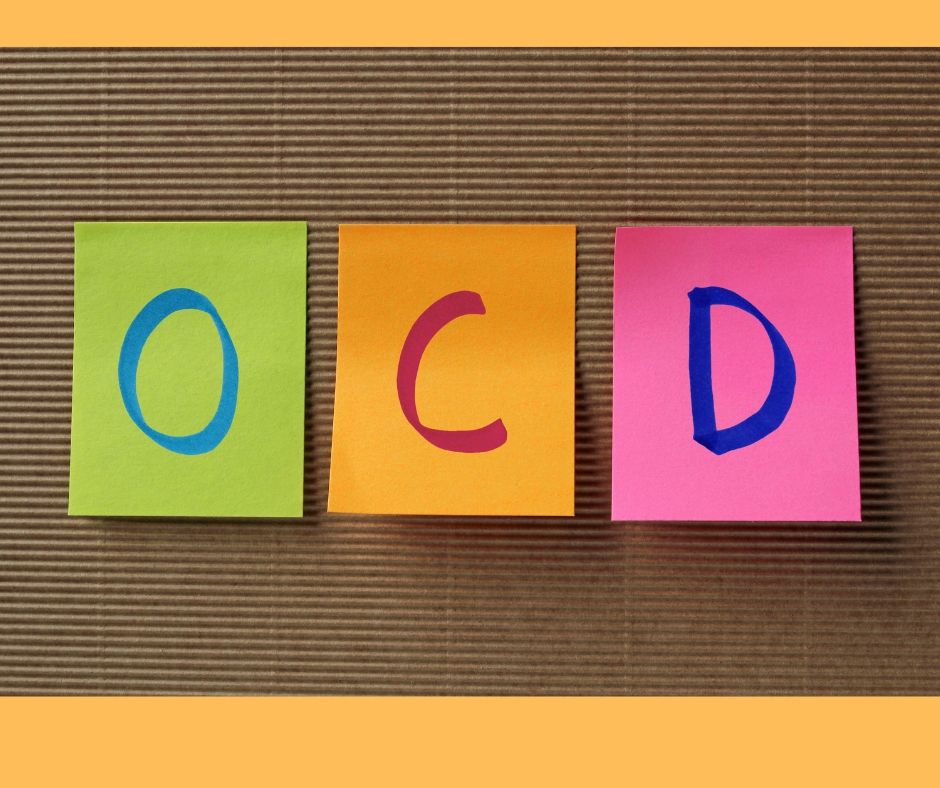
When someone mentions OCD (Obsessive-Compulsive Disorder), most of us probably have images of someone who washes their hands frequently or has to flip a light switch on and off a certain number of times when they enter a room. While these traits are definitely OCD symptoms, it’s important to note there are so many different subtypes of OCD. OCD causes individuals to have disturbing thoughts (obsessions), and then to behave in a certain way because of these thoughts (compulsions).
Today I’m going to discuss Intrusive Thought OCD and some of the different subtypes under it. These subtypes are all about having thoughts or images that are scary or seem threatening (intrusive thoughts). While the individual does not want to experience these thoughts, their brain fixates and “loops” playing out behaviors or acting out because of fear. It’s important to note that it is common for those who have this type of OCD to have more than one subtype.
My Thoughts Scare Me
Harm OCD thoughts can be anything from fear of hurting someone else, acting out in public and embarrassing yourself, or even having violent or horrific images in your mind. People with Harm OCD will avoid triggering situations. For example, maybe they have images of violently stabbing someone. These images are very upsetting, and very out of character for the individual to anyone who knows them. But, their brain convinces them that they will impulsively do it, even if they don’t want to or don’t feel anger towards a particular person.
Individuals with this type of OCD have a lot of guilt and shame and may believe they are inherently evil. They may hide their thoughts from others, hide weapons that they are afraid they will use, and check for things like they didn’t accidentally hit someone with their car, etc. Their thoughts may interfere with their day-to-day functioning.
My Faith is A Trigger
Religious OCD is another subtype. For many, their faith is a constant battle of good versus evil. Their brains convince them that if they pray more, confess more, and attend more religious services than maybe they will be “good enough”. Sometimes it’s praying a certain prayer a particular amount of times until you feel that God approves. There is often a fixation on sin, and constantly worrying if you are doing enough to earn God’s grace. Many of the behaviors are repetitive and shame-based.
Everything I Touch Could Infect Me
Contamination OCD is a form of OCD that hinges on germs, contaminants, and fear of getting sick or dying. Sufferers of this type often believe that they will contract an illness or disease in public places. They may have a fear that the house they live in has lead paint, or that there is mold in a hotel room they’re staying in. They may also have intense fears that someone they love with contract a disease and die.
This is the most common Intrusive Thought OCD subtype—around 25% have this type. Sufferers of this subtype will avoid places that they cannot guarantee are clean, wear protection, clean excessively, wash their hands a lot, and repeatedly get tested for diseases to convince themselves that they are okay.
I’m in the Wrong Relationship
Relationship OCD causes obsessive thoughts about being in a relationship. Those with this subtype may constantly question if they even love their partner, want to be with them, and also question their partner’s love for them. These doubts create a whole slew of problems in the relationship. They may not feel good enough and waiver back and forth. It can be really hard to be in a relationship with an individual who has this subtype. These individuals often compare their relationship to other relationships, look to others for reassurance, and obsess about every little detail.
Hoarding
While hoarding is its own diagnosis now, it also can be considered a type of OCD because the thoughts and behaviors are similar. People who hoard often attach meaning to inanimate things. Just thinking about getting rid of something creates a negative reaction and a lot of anxiety. It can be as simple as being afraid to throw out a glass jar because you may need it later, even if you already have 50 glass jars. It can also be hoarding animals, clothes, newspapers, papers, bargains you find, etc.
I Could Harm a Child
Pedophilia OCD is probably the most tormenting subtype of OCD. People with this type of OCD have thoughts that they may physically or sexually harm a child—even if they have no desire to do so and are not attracted to children. Please note: There is a huge difference between a Pedophile and someone who has Pedophilia OCD. Those with OCD feel anguish, shame, and humongous anxiety about the thoughts they have. They do not want to act on their thoughts, and won’t. They do not have any sexual gratification with their thoughts, only disgust.
Yet their brain replays scenarios of them doing something harmful. Sometimes their brains even try to convince them that they have hurt a child in the past. Those with Pedophilia OCD often suffer in silence because the fear of being exposed is too great. They will avoid being around children, have anxiety when they do have to be around children, and even question if they are a pedophile.
Further Thoughts on OCD
These are just a few of the subtypes of Intrusive Thought OCD—there are actually many, many more! If you are reading this, and wonder if you may have Intrusive Thought OCD, please reach out for help! You don’t have to suffer alone. There is treatment available, and ways to retrain your brain through mindfulness, CBT (Cognitive Behavioral Therapy), and thought-stopping.
I think it’s really important for me to say this: You are not a bad or evil person if you suffer from Intrusive Thought OCD. You cannot control the thoughts and images that your brain conjures up. It is a misfiring in your brain. Those thoughts and images are out of your control. In therapy, you can learn to control your thoughts better. You can also learn healthy ways to cope with the shame, guilt, and anguish that comes along with it. Don’t wait to get the help you need!
For more information on OCD, check out the National Institute of Mental Health’s page.
*Christy Fogg, MSW, LCSW is a licensed therapist at Journey to Joy Counseling. Christy enjoys doing marriage/couples counseling, individual counseling, premarital counseling. She also provides family counseling, teen and adolescent counseling.
Journey to Joy Counseling serves the Indianapolis area, including Carmel, Fishers, Noblesville, Zionsville, and Westfield.



